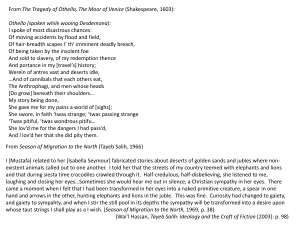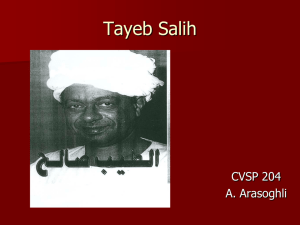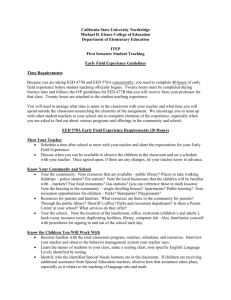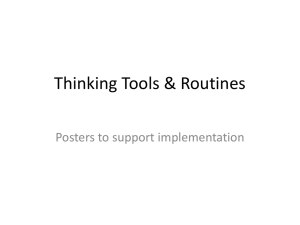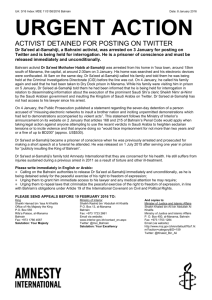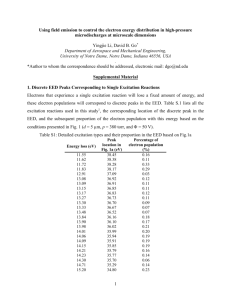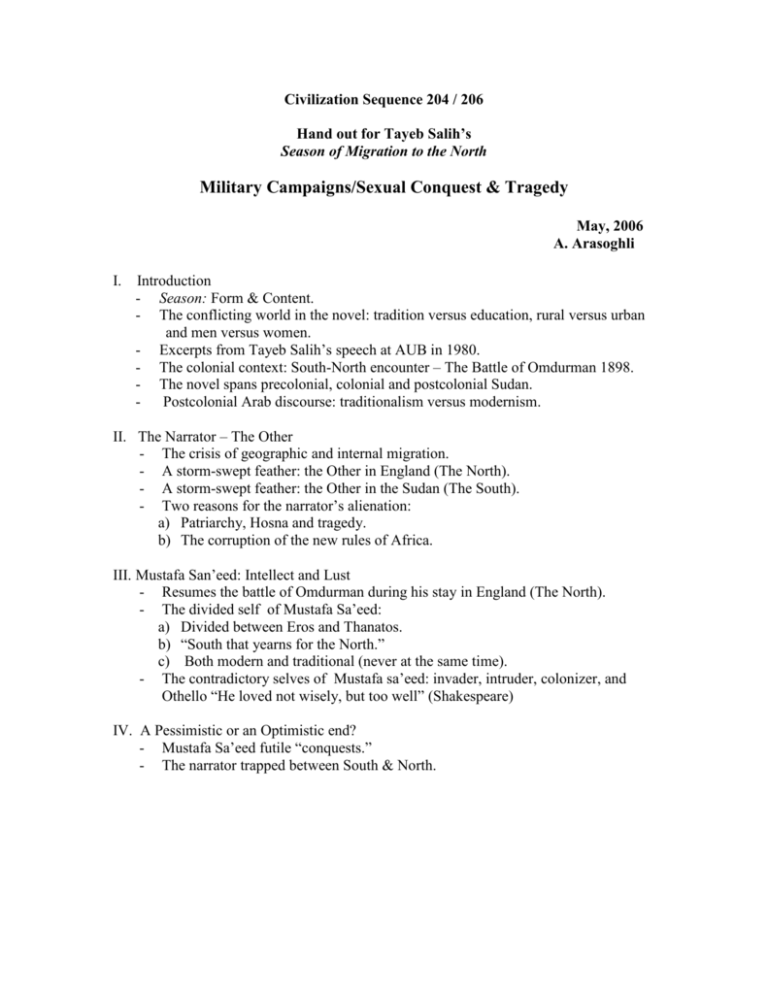
Civilization Sequence 204 / 206
Hand out for Tayeb Salih’s
Season of Migration to the North
Military Campaigns/Sexual Conquest & Tragedy
May, 2006
A. Arasoghli
I.
Introduction
- Season: Form & Content.
- The conflicting world in the novel: tradition versus education, rural versus urban
and men versus women.
- Excerpts from Tayeb Salih’s speech at AUB in 1980.
- The colonial context: South-North encounter – The Battle of Omdurman 1898.
- The novel spans precolonial, colonial and postcolonial Sudan.
- Postcolonial Arab discourse: traditionalism versus modernism.
II. The Narrator – The Other
- The crisis of geographic and internal migration.
- A storm-swept feather: the Other in England (The North).
- A storm-swept feather: the Other in the Sudan (The South).
- Two reasons for the narrator’s alienation:
a) Patriarchy, Hosna and tragedy.
b) The corruption of the new rules of Africa.
III. Mustafa San’eed: Intellect and Lust
- Resumes the battle of Omdurman during his stay in England (The North).
- The divided self of Mustafa Sa’eed:
a) Divided between Eros and Thanatos.
b) “South that yearns for the North.”
c) Both modern and traditional (never at the same time).
- The contradictory selves of Mustafa sa’eed: invader, intruder, colonizer, and
Othello “He loved not wisely, but too well” (Shakespeare)
IV. A Pessimistic or an Optimistic end?
- Mustafa Sa’eed futile “conquests.”
- The narrator trapped between South & North.
Central Quotations
A. Narrator:
1. “I created therefore a conflicting world in which nothing is certain, and
formalistically two voices to force the reader to make up his/her own mind.”
(Mona Amyuni, Case Book)
2. “I felt not like a storm swept feather, but like that palm tree, a being with a
background, with roots, with a purpose” (p.2)
3. “I too had lived with them. But I had lived with them superficially, neither loving
nor hating them.” (p.49)
4. “The fact that they (the British) came to our land, I know not why, does that mean
that we should poison our present and our future?” (p.49)
5. “Mustafa Sa’eed said to them I have come to you (the British) as a conqueror…
But their own coming was not a tragedy as we imagine nor yet a blessing as they
imagine” (p.60)
6. “In this village the men are guardians of the women” (p.98)
7. “That in one form or another, I was in love with Hosna Bint Mahmoud, the
widow of Mustafa Sa’eed” (p.104)
8. “God curse all women! Women are the sisters of the Devil” (p.132)
9. “There is no justice or moderation in the world” (p.102 & p.141)
10. “There is no room for me here. Why don’t I pack up and go” (p.130)
B. Mustafa Sa’eed:
1. “ By day I lived with the theories of Keynes and Tawney and at night I resumed the
war with bow and sword and spear and arrows” (p.34)
2. “And the train carried me to Victoria station and to the world of Jean Morris”
(pp.29, 31, 33)
3. “The distant call still rings in my ears” (p.66)
4. “I derived pleasure from my suffering” (p.159)
5. “Opening a notebook, I read on the first page: (My Life Story – on the next page
was the dedication: To those who see with one eye, speak with one tongue and see
things as either black or white, either Eastern or Western” (p. 151)
6. “I am like Othello, Arab-African” (p. 38)
7. “I am no Othello, I am a lie. Why don’t you sentence me to be hanged and so kill
the lie” (p.33)

